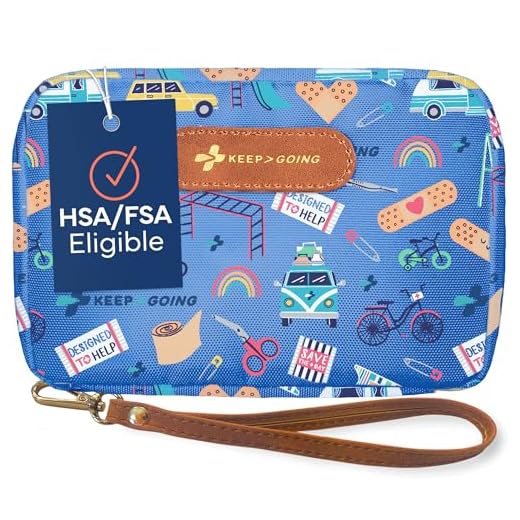



Statistical insights indicate that around 60% of families choose to travel without checked bags during flights. This preference stems from a desire to simplify the boarding process and minimize waiting times at baggage claim. By opting for carry-ons, parents maintain greater control over their essential items, ensuring that everything needed for their little ones remains within reach.
Airlines often impose strict limitations on the number of carry-on items, yet many find creative solutions to maximize space. Utilizing multifunctional diaper bags that double as backpacks or strollers can significantly assist in reducing the bulk of necessary possessions while keeping essentials organized.
Furthermore, packing strategies, such as using packing cubes or vacuum-sealed bags, enhance space efficiency, allowing families to fit clothing and supplies comfortably within cabin restrictions. These tactics not only streamline the travel experience but also minimize stress during airport transitions.
Understanding Luggage Choices for Families with Young Children
Choosing the right baggage approach can simplify travel for guardians and their little ones. Opting for carry-on items is common among those who prioritize convenience and quick access to essentials. This choice eliminates the waiting time at baggage claim, allowing families to head straight to their destination.
When selecting carry-on solutions, focus on suitability and organization. Use lightweight, spacious bags with multiple compartments to store snacks, entertainment, and comfort items. Implement lightweight strollers or carriers, which can be maneuvered through airports and stored in overhead compartments.
Consider implementing packing strategies that prioritize versatility. Roll clothing to maximize space and utilize packing cubes to maintain order. Include a small bag dedicated to toddler necessities, such as wipes, diapers, and a change of clothes. This proactive planning reduces stress during travel.
Evaluate airline policies on carry-on dimensions and items permitted on board. Familiarity with these regulations minimizes hassle and ensures compliance. Some airlines also offer family boarding options, allowing for a smoother boarding experience.
Traveling with young ones means being prepared for unplanned situations. Keeping a few health and safety essentials readily available can alleviate potential issues. This includes a small first-aid kit and any necessary medications.
Ultimately, tailoring baggage strategies to the unique needs of little ones enhances the travel experience. A thoughtful approach to carry-on logistics fosters a more enjoyable journey for the whole family.
Statistics on Luggage Checking Habits Among Parents with Young Children
Recent surveys indicate that approximately 65% of guardians traveling with small children opt for carry-on bags rather than checking in larger items. This trend emerges from a desire for increased convenience and the need for immediate access to essential items during flights.
Primary reasons for this preference include the ability to quickly grab snacks, toys, and other necessities. Notably, families often report that having these items readily available minimizes stress during travel. Furthermore, about 30% of respondents indicated concerns over lost or delayed checked items, which significantly influences their choices regarding baggage.
Statistical analyses also reveal a correlation between the age of children and luggage preferences. For instance, families with infants are more likely to favor carry-on options, while those with toddlers exhibit slightly greater flexibility, with around 25% admitting to checking in at least one piece of luggage.
Airlines recognize these behavioral patterns, leading to tailored services aimed at making travel smoother for families. Offering priority boarding and specialized assistance reflects the industry’s acknowledgment of the unique needs faced by these travelers.
The choices surrounding baggage are not only practical but also influenced by personal experiences. Many recommend engaging in discussions with other families or seeking advice online, such as exploring fun destinations like the best aquarium in arizona, to gather insights about traveling efficiently.
Factors Influencing Parents’ Decisions to Avoid Checked Luggage
Carrying minimal items proves advantageous for families traveling with small children. This approach allows for quicker boarding and disembarking, enabling smoother transitions through busy terminals. Parents often prioritize convenience and mobility, reducing the chances of misplacing belongings during travel.
Traveling Light
Opting for hand baggage allows parents to keep essentials easily accessible. Items such as diapers, snacks, and toys can be stored within reach, making it simpler to address a child’s needs without unnecessary delays. Additionally, avoiding checked bags eliminates the risk of lost luggage, particularly during layovers.
Cost Considerations
Many airlines impose fees for checking bags, influencing families to limit their baggage count. For those traveling on a budget, this can lead to considerable savings, motivating parents to pack efficiently. Promotional fares may also include restrictions on baggage, further encouraging this choice.
Benefits of Carry-On Only Travel for Families with Young Children
Prioritizing carry-on travel enables swift movement through airports while reducing stress. Families utilizing this approach often experience enhanced flexibility, leading to more enjoyable trips.
Streamlined Airport Experience
- Immediate access to necessities during layovers or delays.
- Shorter wait times at check-in and baggage claim areas.
- Less hassle when transitioning between connections, especially with limited time.
Financial Savings
- Avoidance of checked baggage fees, which can accumulate quickly, particularly on budget airlines.
- Reduced costs from potential lost luggage, which could require purchasing essential items upon arrival.
- Ability to choose lower-priced accommodation options due to fewer distractions and logistics related to luggage handling.
Traveling light fosters an emphasis on quality time. Fewer items mean less packing distractions, allowing families to focus on bonding moments. By minimizing belongings, parents can prioritize essentials, leading to a more organized and memorable experience.
Moreover, limiting baggage encourages creativity in packing. Families often learn to select versatile clothing and multifunctional gear, promoting efficient use of space. Such skills not only benefit future travels but also create a practical packing mindset for everyday life.
Incorporating these strategies helps families achieve smoother travel outings, ensuring smooth transitions and enjoyable adventures together.
Strategies for Packing Light When Traveling with a Toddler
Utilize packing cubes to maximize space and organization in carry-on bags. These compact containers allow easy access to essentials, keeping items sorted by category such as clothing, snacks, and toys.
Prioritize Multi-Use Items
Include versatile clothing that can serve multiple purposes. For instance, choose dresses that can double as casual daywear and evening outfits, or jackets that can be worn in layers. Look for toys that can entertain in various ways and are easy to pack.
Employ a Minimalist Approach
Assess what truly is necessary for the trip. Limit the number of outfits to a few mix-and-match pieces. Consider washing clothes at the destination to decrease the amount brought along. Avoid packing bulky items that take up considerable space.
Opt for items that are lightweight and compact, also considering collapsible gear. Travel-friendly strollers and foldable car seats can significantly reduce bulk. Finally, ensure to pack any essential items, such as snacks and a favorite blanket, to soothe your little one during travel. For wedding occasions, selecting the best type of umbrella for wedding can also fit snugly within your packed gear.








